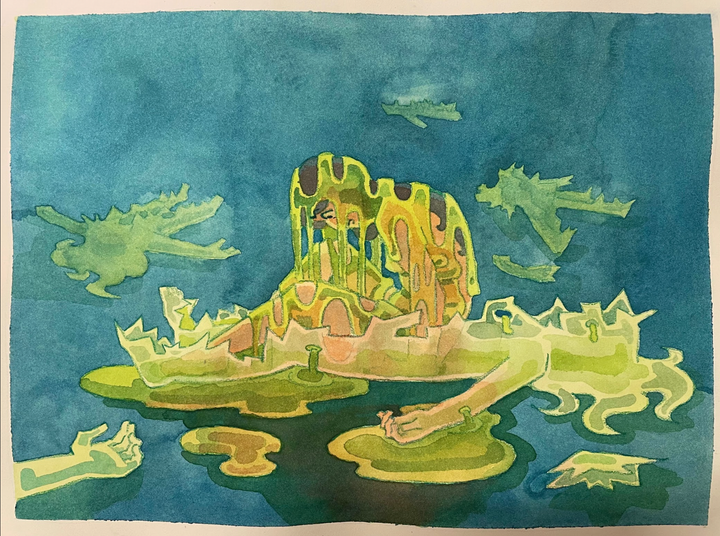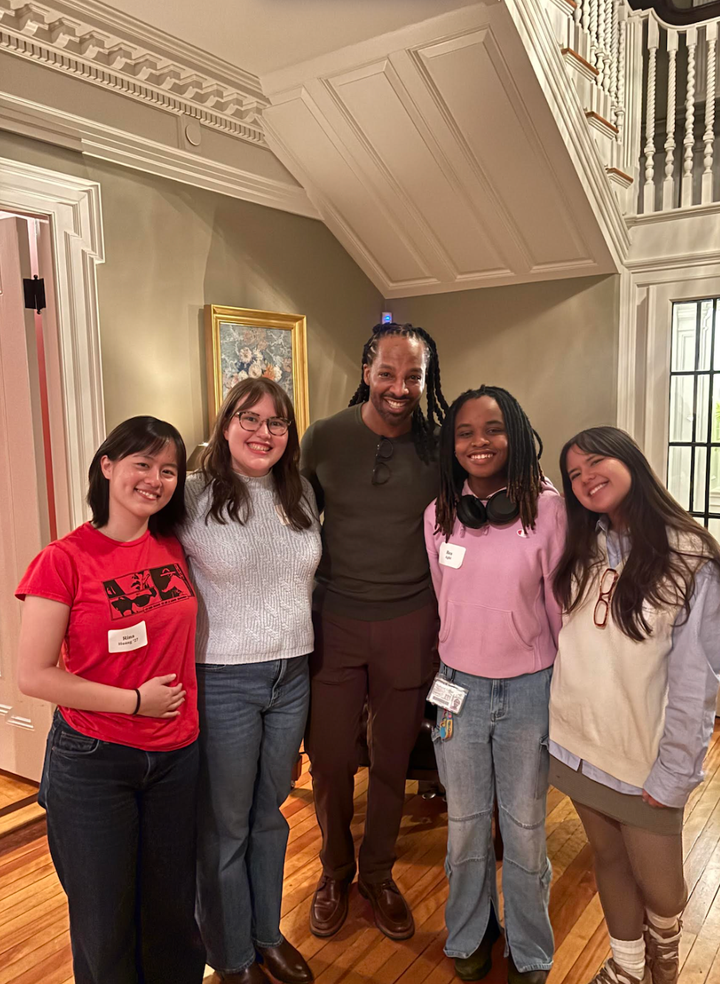The Story Behind Women of Amherst

This past weekend, the Women of Amherst performed “On Stage(s),” a show comprising mostly anonymous submissions written by female members of the community about their experiences at Amherst College. After the public and painful confrontation with sexual violence that Amherst experienced this past fall, the Women expected an onslaught of accounts of assault. Instead, along with the more weighty material, people sent in stories of virginity, letters of apology and appreciation to their bodies and explorations of sexual orientation. A script emerged from these submissions and a couple writing exercises from the fall semester that both celebrated and mocked these shared experiences: awkward middle school dances, first kisses that tasted like ketchup and insecurity, among many others. Thanks to a patient cast and an audience that wasn’t afraid to laugh or cry or let their jaws drop, On Stage(s) successfully shared the story of where we, the Women of Amherst, have been, are now and will go in the future.
As seen in past years, what’s wonderful about the Women of Amherst’s cast is its diversity — of origins, interests, class years, sexual orientations, reasons for being in the show, and level of involvement. Even when dressed in the uniform performance colors of black and red, personalities poked through in the forms of silky red ties, short, skin-tight dresses and baggy black pants. Varied accents and a range of static speeches to roaming rants made each piece both personal for the performer and powerful for the public.
What’s generally unexpected about the show is the variety of pieces performed. On Stage(s), like its predecessors, is not a litany of complaints about gender inequality and/or a series of dramatic retellings of first periods, but ranges from discussions of what makes family to dreams of sticking googly eyes on a hypothetical penis, to pleas to distinguish between sex and rape. “Yes,” a poem performed towards the end of the show celebrates the joys of sex while recognizing that “no” means “no.” “Pregnant” is a group piece acknowledging and mocking the daily prompters of pregnancy scares: a hard uterus, having to pee and the baby aisle at CVS. “Family” speaks in appreciation for a certain strong mother and of love, which is a stronger binding force than either biology or marriage. Contrary to what seems to be a popular misconception, just because the show is written and performed by the Women of Amherst does not mean it is intended to be heard solely by the women of Amherst.
What’s most important about the annual production is that it raises money through a raffle for the New England Learning Center for Women in Transition (NELCWIT), a local organization that provides support for survivors of domestic abuse and preventative education for Franklin Country and the North Quabbin region. Since 1976, NELCWIT has served over 14,000 members of the community. Last year, the Women of Amherst’s donation was the third largest donation that NELCWIT received. This year, we raised over $700 more dollars for a total of $2,320.13, making us extremely proud and NELCWIT very grateful.
What made this year exceptional, in addition to the record breaking amount raised for NELCWIT, is that the show was entirely written, edited, directed, organized and performed by students. Cast members volunteered to make the programs and posters, the directors managed finances even without a department account number to use for funding, and each person approached multiple businesses and professors to ask for donations for the raffle. The cast was upset to say goodbye to Gretchen Krull, who has served as an advisor and mentor to the cast in the years past. After reaching out to a couple of staff members who understandably could not undertake the added responsibility of the show, the Women of Amherst abandoned the idea of finding a new advisor. The ensuing level of support from the administration left a lot to be desired. In a time when the message of what it is like to be woman on this campus seemed more important than ever, many people were less than happy to accommodate or advise.
Yet, the show went on, and so On Stage(s) became a product of hard work and independence. It was heartening to have the words I wrote spoken by a friend on stage, to have raised a considerable amount of money for a deserving organization, and to have looked out into attentive, encouraging faces and know that my voice was being heard. Thank you to those who came to the show, bought raffle tickets, and refused to allow women’s issues to exist only in an ephemeral phase of fervor on this campus. Even when voices die down and the speed at which articles are written slows and committees stop meeting, the story is not over.
To learn more about NELCWIT or to donate, please visit: http://www.nelcwit.org/




Comments ()